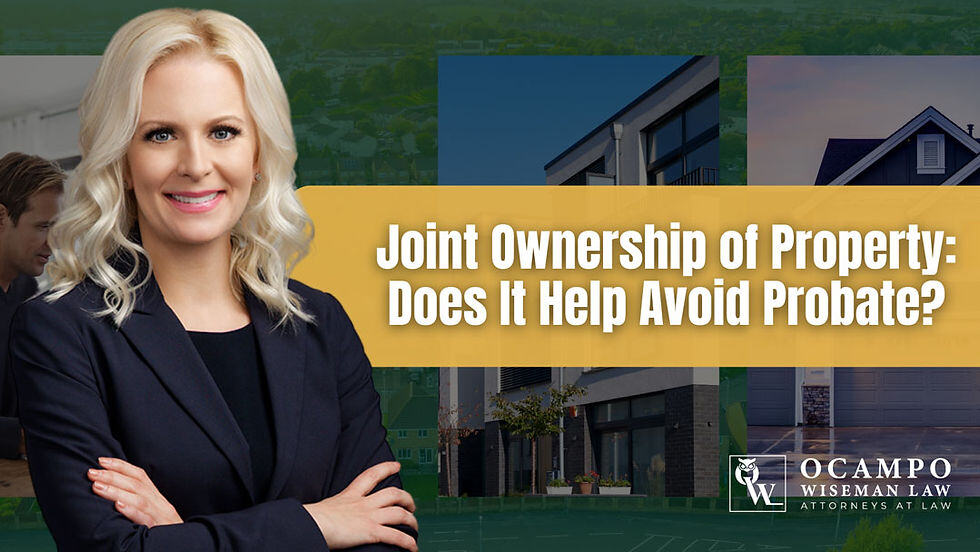What Is Joint Ownership and How Does It Work?
Joint ownership, particularly with real estate held in joint tenancy, enables property to transfer automatically to the surviving owner(s) when one owner dies. This automatic transfer means that probate is not required for that specific property.
Example: How Joint Tenancy Avoids Probate
For instance, consider a couple who owns their home as joint tenants. If one partner passes away, the surviving partner automatically becomes the sole owner of the property. This smooth transition avoids the need for probate, saving time, reducing legal complications, and cutting down on probate-related expenses.
When Does Joint Ownership Apply?
It’s important to note that joint ownership applies mainly to specific assets, like real estate. If you're looking to simplify the transfer of property and avoid the probate process, setting up joint tenancy is a practical and effective strategy.
Consult a Legal Professional for Guidance
For more information or personalized guidance on probate and joint ownership, it’s recommended to consult with a legal professional. Sarah Ocampo, an experienced attorney in this area, is available for consultations. Contact our office today to schedule an appointment.






